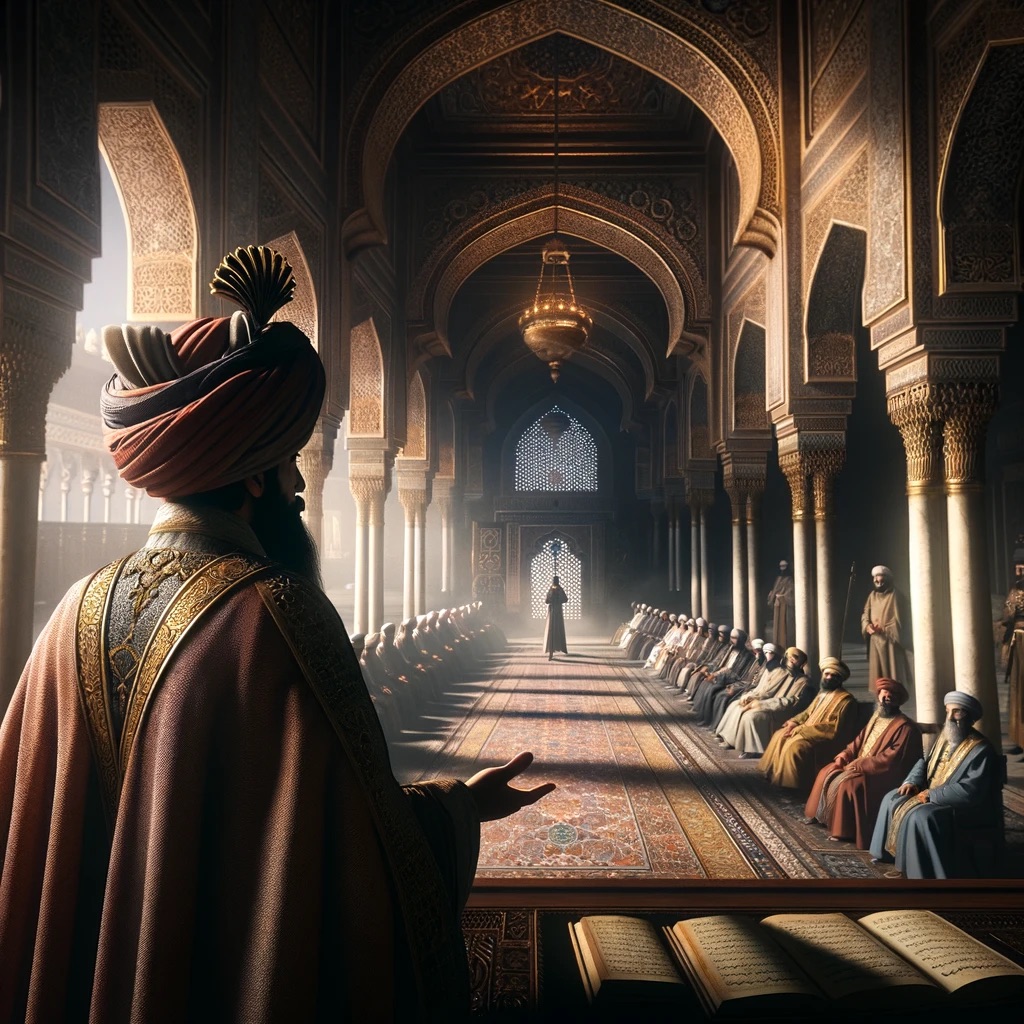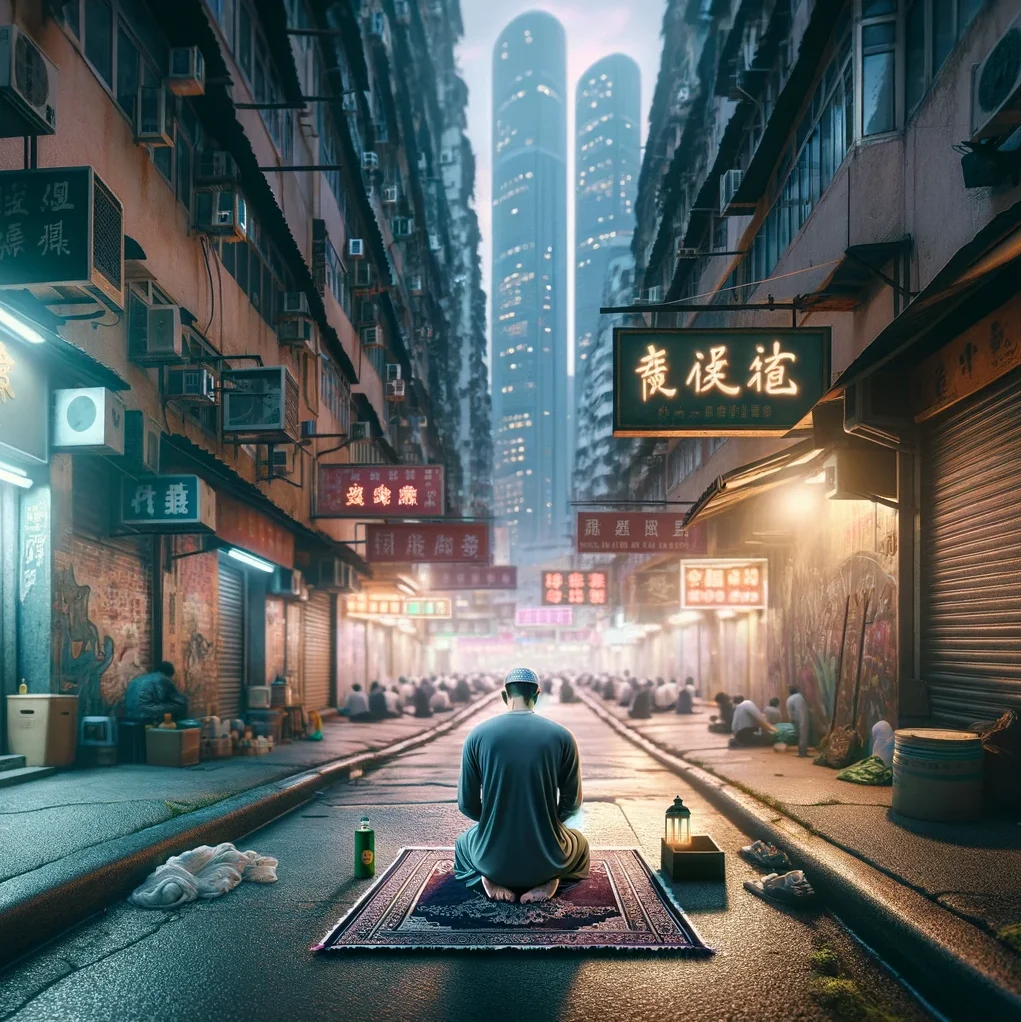Watch The Thrown: Religious Scholarship & Power

Scholars & Power
Al-Asma’i said: Ata’ ibn Abi Rabah entered upon Abdul Malik ibn Marwan while he was sitting on his throne surrounded by nobles, during his pilgrimage in his caliphate. When Abdul Malik saw him, he stood up to greet him, welcomed him, and seated him beside him on the throne, then sat in front of him and asked, ‘O Abu Muhammad, what do you need?’
He said, ‘O Commander of the Faithful, fear Allah regarding the sanctity of Allah and His Messenger’s sanctity, and maintain it well; fear Allah regarding the children of the Migrants (Muhajirun) and the Helpers (Ansar), for by them you have come to sit in this seat; fear Allah regarding the people of the frontiers, for they are the fortress of the Muslims; and look after the affairs of the Muslims, for you alone are responsible for them; and fear Allah regarding those at your door, do not neglect them nor close your door to them.’
He replied, ‘I will do so.’ Then he rose, but Abdul Malik held him and said, ‘O Abu Muhammad, you have asked for the needs of others and we have fulfilled them, so what do you need?’
He said, ‘I have no need of any creature!’ Then he left.
Abdul Malik then said, ‘This is dignity, O my father, this is nobility.’
I often hear passionate Muslims disparage ‘the scholars’ as sell-outs and lackeys. While that may hold true, the majority of scholars and educators are people of integrity, often flawed, but not devils. A question arises: where are the masses of Muslims who make that claim? Since the Arab Spring, hundreds of thousands of scholars have been imprisoned in Muslim lands. Where are those who claim to adore these scholars?
Religious power often came from a mix of communal values and deep dedication to scholars that tipped the balance of power: if you mess with scholars, there is a price to pay.
Today, with some Muslims enamored by the material world, seeing their value through its metrics, that balance is gone, amplified by unhealthy expectations and misplaced frustrations. Don’t ask what scholars have done for you, but what you have done for them…
For perspective: compare the ‘ummah’s’ silence on the imprisonment of Sh. Salman al-Auda, Sheikh al-Qaradawi’s family, or even in the 2000s, Sheikh Muhammad al-Hasan, with the efforts to defend the Dalai Lama by his followers.
For there to be order, there must be a social contract between religious scholars and the masses that guarantees the protection of both centered on worship. If not, instability sets in, and the rot of unchecked despots, supported by compromised scholars, takes hold.
Suhaib Webb
The narration above is referenced in: (Tadhkirat al-Huffaz, Vol. 1, Page 91, Entry 90) and in (Mizan al-I’tidal, Vol. 3, Page 70, Entry 5640).
